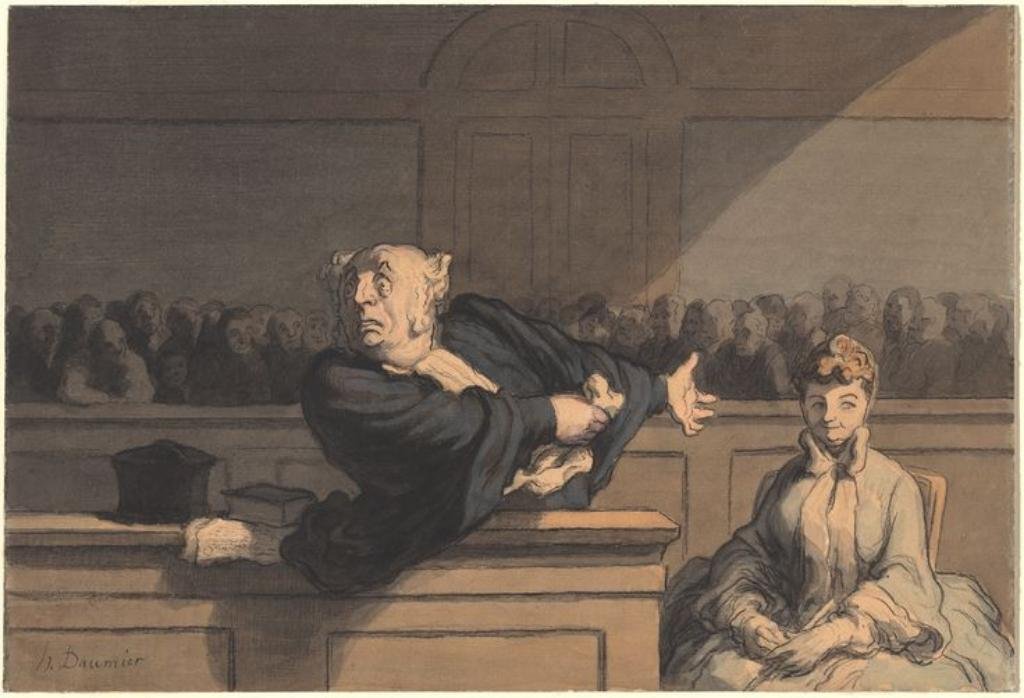Unapologetically Guilty: A Woman’s Wit Against a Man’s Law

Introduction:
Giovanni Boccaccio’s Decameron is a rich collection of tales exploring love, morality, wit, and social conventions during 14th-century Italy. One particularly striking story is the tale of Madonna Filippa, told on Day Six, which focuses on how clever words and courage can change outcomes. This tale stands out for its bold portrayal of a woman who defies legal injustice with intelligence and grace. Through her defense, Boccaccio not only critiques oppressive laws but also elevates female agency, making this tale a timeless example of how wit can challenge authority and inspire reform.
Summary:
In the Tuscan town of Prato, Madonna Filippa is caught committing adultery by her husband and brought to trial under a law that punishes such acts with death. When the trial begins, many townspeople come to watch, curious to see how she will respond. To everyone’s surprise, Madonna does not try to hide or deny the accusation. Instead, she confidently admits that she did indeed take a lover. However, she explains that she never refused her husband his rights, and that the love she gave to another harmed no one. She adds that, because she had more love to give than her husband needed, it was not wrong to share it with someone else, especially when it brought joy instead of damage. Her honesty, confidence, and clever reasoning impress the judge and the crowd. Rather than being condemned, she is praised for her intelligence and boldness. As a result, the court not only spares her life but is moved to reconsider the outdated and harsh law. Over time, the law is changed to be less severe and more just. Madonna Filippa emerges from the trial not as a criminal, but as a figure of respect and admiration.
Analysis:
Boccaccio masterfully uses irony and clever dialogue to turn a potentially tragic situation into a comedic triumph. The tale plays with expectations: while one might anticipate Madonna Filippa to plead innocence or express shame, she does neither. Instead, she uses logic and rhetorical skill to undermine an unjust law. This inversion of roles—where the accused outsmarts the accusers—highlights the tale’s celebration of wit as a tool of empowerment.
Thematically, the tale explores justice, gender roles, and the power of speech. It questions who gets to define morality and whose voices are heard in shaping the law. Boccaccio uses this tale to highlight the inconsistencies of societal rules and to propose that fairness must come from reasoning, not blind adherence to tradition.
Her speech is not only persuasive but radical. She challenges the law’s fairness, framing it as one-sided and harmful to women. In doing so, she anticipates feminist arguments centuries before they would gain traction. Her line of defense—that she did no harm and acted out of abundance, not deceit—is both humorous and subversive. Boccaccio, through her voice, critiques the hypocrisy of moral laws that punish women far more severely than men for the same actions.
The tale is also a commentary on public perception and the power of eloquence. Madonna Filippa wins over the court and crowd not by conforming to social expectations but by boldly articulating her truth. Boccaccio uses this to suggest that societal norms can be bent—or even rewritten—by those courageous enough to speak out.
Personal Response:
I found this tale surprisingly modern and empowering. What stood out most to me was how confidently Madonna Filippa spoke for herself in a setting where she could have been silenced or shamed. Her argument was logical, honest, and even humorous, which made her instantly likable. I appreciated Boccaccio’s ability to create a female character who is not only clever but also morally strong. This story made me reflect on how storytelling can be a powerful tool for social commentary and change.
Conclusion:
The tale of Madonna Filippa remains relevant because it speaks to ongoing issues of justice, gender, and power. Through sharp wit and fearless speech, Filippa challenges a system designed to suppress her, and in doing so, inspires both laughter and critical thinking. Boccaccio’s ability to blend humor with social critique gives the tale lasting value. In a world still grappling with inequality, Madonna Filippa’s voice reminds us that truth and courage, when spoken clearly and boldly, can reshape even the oldest laws.








